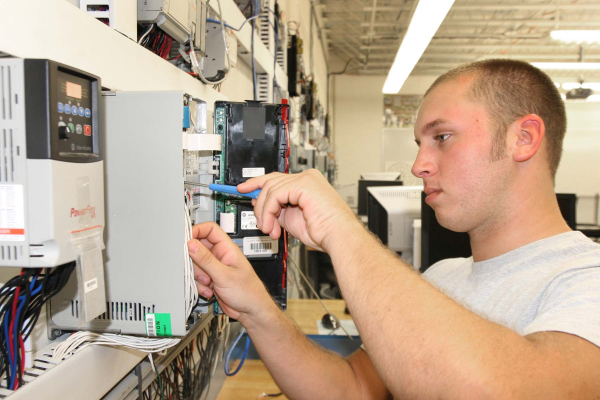What do you want to be when you grow up? Know yourself; that is the first and most important step in selecting a career pathway. This is true whether you are considering a career change, contemplating a new career for your retirement years or a true college freshman. In order to make a well-informed decision you must identify your interests, values, skills and personality preferences.

Do You Possess The Following Traits?
-
Business skills
-
Concentration
-
Cultural sensitivity
-
Dexterity
-
Listening skills

If so, the Interpreter Training Program might be just the program for you! The program is designed to prepare students to interpret/transliterate spoken English into American Sign Language and American Sign Language into spoken English while working with the Deaf and hard of hearing. The interpreter works in a variety of settings including educational, medical, community, business and occupational. The primary goal of the program is to prepare students to have and knowledge and understanding of the work a sign language interpreter, develop language skills and be ready to take the state level screening. After a student has passed state level screening, they are ready for an entry level position where they will continue to gain knowledge and skills and prepare for national certification.
Students will not only receive hands-on learning experiences in the classroom with industry-standard equipment, but they will venture out into the deaf community to apply their knowledge. In fact, experience in the deaf community is what helps the student be successful. All training activities and instructional material emphasize the importance of maintaining high personal standards. Work habits and ethical practices required on the job are an integral part of the instruction.
What Do Interpreters Do On The Job?
-
Convert concepts in the source language to equivalent concepts in the target language
-
Relay style, tone and affect
-
Manage work schedules to meet deadlines
-
Render spoken ideas accurately, quickly, and clearly
Will I Be Able To Find A Job?
According to the Bureau of Labor Statistics, employment of interpreters is expected to grow 42 percent from 2010 to 2020. Driven by the increasing use of video relay services, which allow people to conduct online video calls and use a sign language interpreter demand for American Sign Language interpreters is expected to grow rapidly. Job opportunities should be best for those who have professional certification. In addition, urban areas should continue to provide the largest numbers of employment possibilities, especially for interpreters. Interpreters for the deaf will continue to have favorable employment prospects because there is a shortage of people with the needed skill levels.
This Interpreter Training Technology program is located on the Raymond campus of Hinds Community College. For more information, contact Sandra Hester at SDhester@hindscc.edu or 601.857.3487.


-resized-600.jpg?width=400&height=266&name=electronics_tech_img_9279_(2)-resized-600.jpg)















